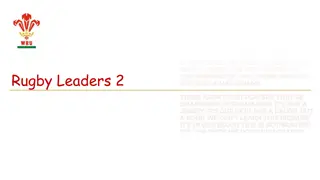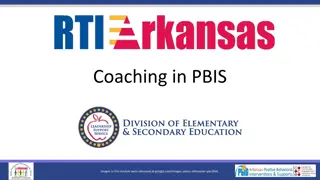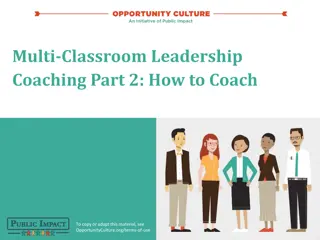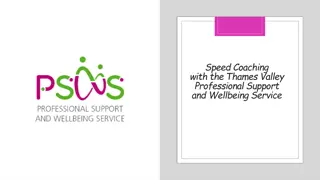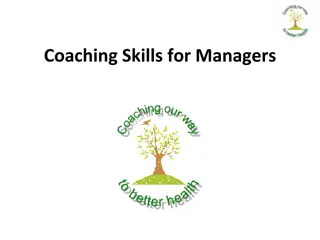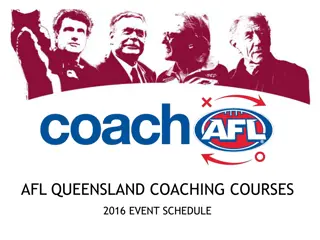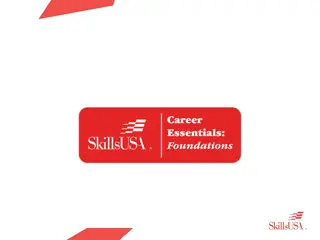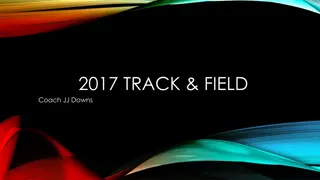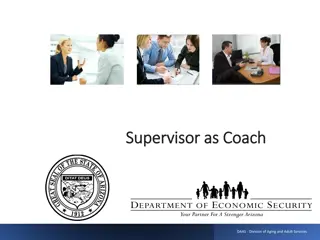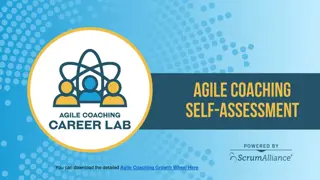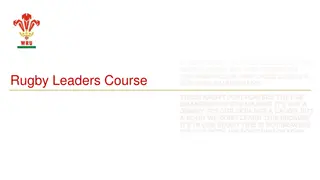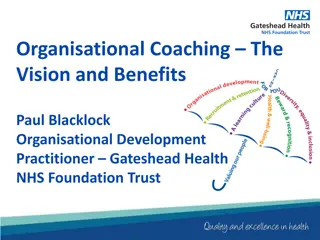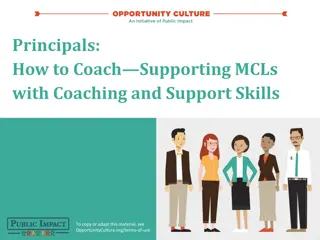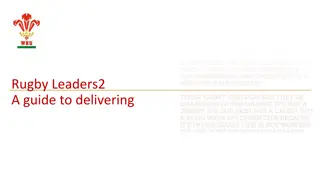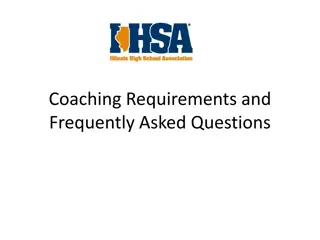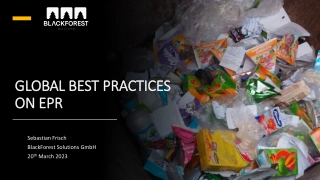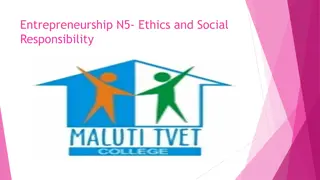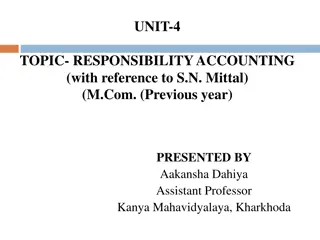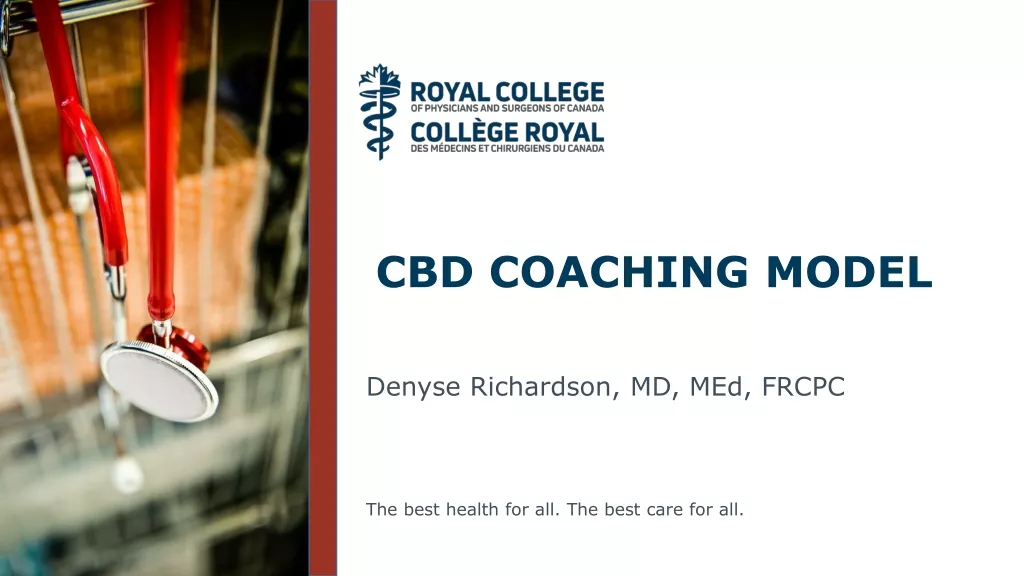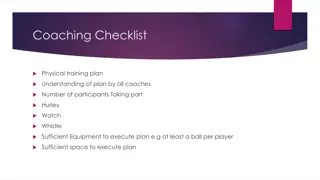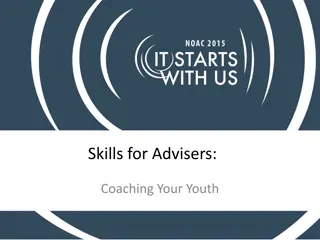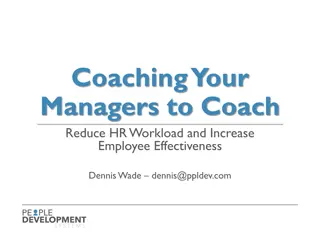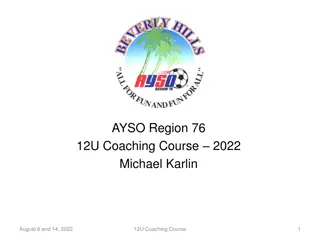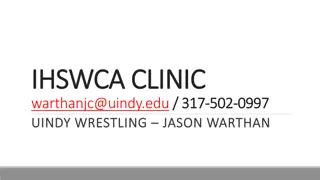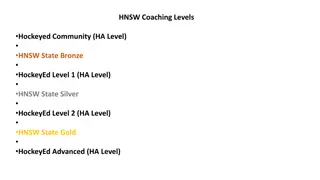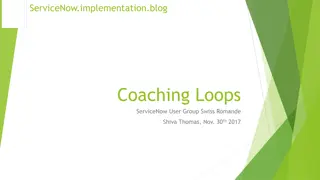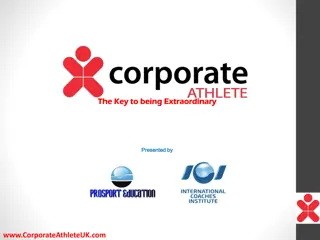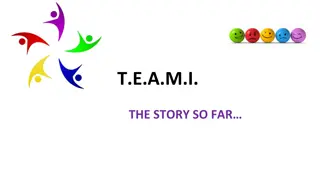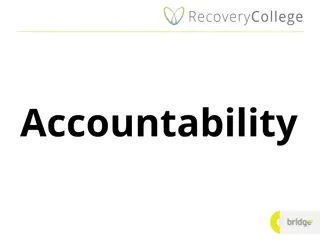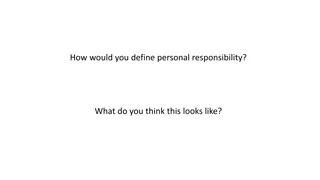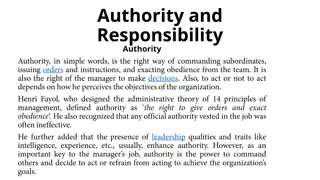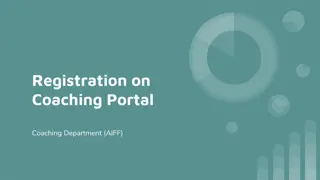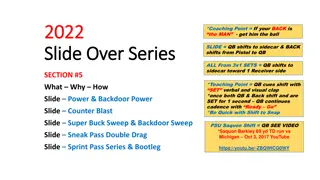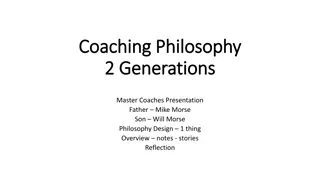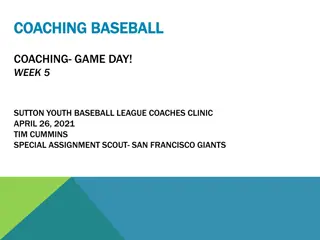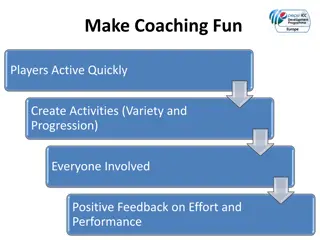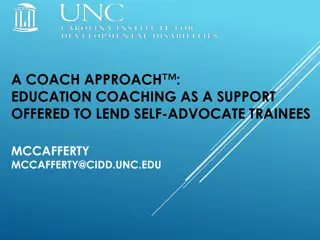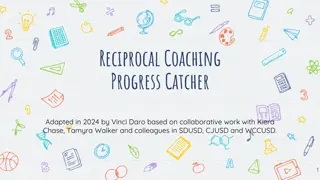Embracing Personal Responsibility: Coaching Group Activity
Explore the concept of personal responsibility in a group coaching session focusing on self-awareness, accountability, and proactive behavior. Discover ways to take control of your life, avoid blaming external circumstances, and enhance your overall well-being. Engage in discussions, reflection activities, and practical exercises to develop a mindset of accountability and empowerment.
Download Presentation

Please find below an Image/Link to download the presentation.
The content on the website is provided AS IS for your information and personal use only. It may not be sold, licensed, or shared on other websites without obtaining consent from the author. Download presentation by click this link. If you encounter any issues during the download, it is possible that the publisher has removed the file from their server.
E N D
Presentation Transcript
Embracing Personal Responsibility Coaching ourselves: group activity
90 min Session Guidelines 1. Introduce yourselves to each other. 2. Decide who will be the timekeeper. The timings for each slide are bottom left. 3. Read the pages aloud and follow the instructions
90 min 5 min Postdoc Check-In Take turns at reading the instructions aloud. Follow all the instructions. Each person share and reflect on a story that has happened to you this week, this could be around your work or personal life, a memorable conversation, a meeting, or an event. Or Follow up on anything you have reflected or taken action on since your last session.
90 min 3 min Session Agenda Postdoc check-in Topic overview Introduction Covey's Circles of Concern and Influence The Loci of Control Discussion: Taking Personal Responsibility Final Reflection Facilitators Notes
90 min 2 min Topic overview: Developing personal responsibility Personal responsibility helps you to care for yourself, become more self-aware, and take control of your life. It is easy to blame others or external circumstance for the negative aspects of your life, but doing so worsens your quality of life and mental wellbeing. This session looks at how you can take personal responsibility. In this session you will cover: How you can be proactive when facing change, such as career transition What it means to be accountable And how being accountable can contribute to your success.
90 min 10 min The circle of influence Stephen Covey, in The Seven Habits of Highly Effective People, describes circles of influence and circles of concern. Career change may bring up various concerns: Circle of Concerns Such as children, money, work-life balance, the state of the economy, the threat of war Circle of concerns Circle of Influence Concerns that we can do something about and have some control over. Circle of Influence Covey talks about being proactive and recommends that people focus their effort on concerns within the circle of influence. Behaving proactively, rather than being reactive prevents you from losing energy on what you cannot change.
90 min 10 min Being proactive not reactive about change and stress Activity: Individual reflection 1. Draw two concentric circles on a piece of paper. Making sure that both circles are large enough to write in. 2. Then separately list all the concerns you have at the moment. It would be good to come up with a list of about five or six concerns. 3. Write these concerns in the outer circle. This outer circle is called the circle of concern . 4. Then looking at each of these concerns in turn make notes in the inner circle about what to do: - Avoid: Sometimes the most constructive thing to do is stop triggering ourselves! - Alter: Can you change the situation by stating a boundary, managing time, or communicating? - Accept: Sometimes we may have no choice but to accept things the way they are. You may feel better able to accept after talking it out with someone, or journaling. - Adapt: Thinking about not being able to cope is often the most stressful thing about our concerns. You could try adjusting your standards, reframing the issue, looking at the bigger picture, adopting a mantra 'I can handle this'.
90 min 10 min What is personal responsibility? Definition: Personal responsibility refers to the willingness and ability to take responsibility for your actions, decisions, and outcomes. It involves being aware of the impact of your behaviour on yourself and others and taking ownership of the consequences of your actions. Discuss: - Is personal responsibility always a choice, or are there certain circumstances where it is impossible to take responsibility for one's actions or decisions? - How can external factors such as societal structures, power dynamics, and privilege impact an individual's ability to take responsibility for their actions? - What role does forgiveness, empathy, and compassion have in holding yourself accountable for your actions and making amends for any harm caused?
90 min 5 min Personal accountability model The personal accountability model is a framework for understanding and practicing personal accountability. It includes four key elements: 1.Ownership: Taking responsibility for one's actions, decisions, and outcomes. This involves acknowledging mistakes, admitting limitations, and being willing to learn from feedback. 2.Self-awareness: Understanding one's strengths, weaknesses, values, and beliefs. This involves being honest with oneself and reflecting on one's thoughts and emotions. 3.Commitment: Making a clear and conscious commitment to achieving specific goals or outcomes. This involves setting priorities, creating a plan, and following through on commitments. 4.Action: Taking proactive steps to achieve goals and objectives. This involves staying focused, taking initiative, and persevering in the face of challenges.
90 min 20 min Practice the personal accountability model: Download: Personal accountability model Divide yourselves into small groups of 3-4 people or work in pairs. Each group should identify a specific goal or objective they want to achieve (e.g., find a new career direction, learning a new skill, improve my confidence, etc.) Use the personal accountability model to discuss how you can apply the four elements of the model to achieve the goal. Create a plan of action that includes specific steps to achieve the goal, along with a timeline and accountability measures. Come back together and each group shares their plan with the larger group and receive feedback from others.
90 min 15 min Personal accountability career discussion Discuss: How can personal accountability help you achieve your career goals? What are some common challenges for postdocs in taking personal accountability for career development, and how can they overcome these challenges? How can self-awareness help postdocs take personal accountability for their career development? How can postdocs hold themselves accountable for their career development, while also seeking support and guidance from mentors and other professionals in their field? How does personal accountability impact job satisfaction and overall career success? What are some strategies for setting goals and tracking progress in career development, and how can personal accountability play a role in this process?
90 min 5 min An accountability buddy? Being an accountability buddy pair involves two individuals who agree to support each other in achieving their personal or professional goals. Here is how it typically works: 1. Find a partner: who shares similar goals and values, and who is committed to holding each other accountable. 2. Set goals: for what you want to achieve. Goals should be specific, measurable, achievable, relevant, and time-bound (SMART). 3. Schedule regular check-ins: with your accountability buddy to discuss your progress, setbacks, and next steps. These check-ins can be weekly or monthly as appropriate. 4. Hold each other accountable: If one of you is not meeting your commitments, the other should provide support and encouragement to help get you back on track. 5. Provide feedback: As you work towards your goals, you should provide each other with constructive feedback on your progress. This can help you identify areas for improvement and make necessary adjustments to your plan. The process requires commitment and dedication from both parties, but the benefits can be significant, including increased motivation, productivity, and a sense of accountability.
90 min 5 min Final reflection What do you take away from this discussion? Share your thoughts with the group
90 min Resources Personal Responsibility, Ray O'Laughlin, Ted Talk How To Hold Yourself Accountable and Never Be Held Back
90 min Facilitators notes Personal responsibility is a crucial aspect of personal growth and success. Key Points to Address: Understanding Personal Responsibility: Define personal responsibility and its importance in personal development. Explain the difference between being responsible and placing blame on external factors. Emphasise that personal responsibility is a mindset and a choice. Identifying Areas for Growth: Encourage participants to reflect on areas of their lives where they can improve their sense of personal responsibility. Ask them to identify specific situations or behaviors where they tend to shift blame onto others or external circumstances. Discuss the significance of taking ownership of one's actions and choices, regardless of the outcomes. Share examples of how personal responsibility leads to personal growth and learning from mistakes. Setting Realistic Goals: Guide participants in setting realistic and achievable goals that align with their values and aspirations. Emphasise the importance of creating a plan to work towards those goals.
Thank you. Get in touch: Email: prosper.postdoc@liverpool.ac.uk Website: https://prosper.liverpool.ac.uk/ and https://www.liverpool.ac.uk/researcher/prosper/ Twitter: @ProsperPostdoc Except where otherwise noted, this work is licensed under the Creative Commons Attribution-NonCommercial- ShareAlike 4.0 International License. To view a copy of this license, https://creativecommons.org/licenses/by-nc-sa/4.0/


